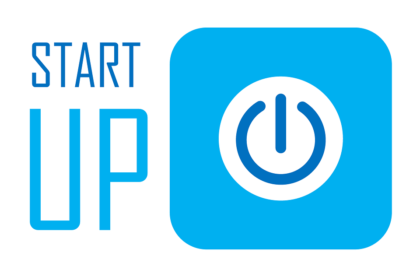
By FAR, the greatest mistake that startup founders make is that they start with the wrong things. They tend to have an assumption or desire about how to solve a problem and they go. You read that “startup” book that tells all you need to know… you went to a meetup or networking event that talked about what it takes… you’re ready!
Are you?
How do you actually start, with no money, so that you know you aren’t wasting your time? Here’s what no one will tell you: You don’t start selling and don’t just start coding.
If you are to actually have what you might consider a successful venture, a business, it starts there – in determining that you actually have a business. Let me throw for you a loop though… don’t yet worry about an LLC, accounting, patents, a website, nor coding if you’re diving into an web based venture – you don’t yet have anything! Let’s start at the very beginning: Do you know the market intimately?
Competitors, history, potential partners, costs, revenue models, what potential customers think they want – and what they might actually want? It doesn’t matter that you think you know, do you?
That’s your job. That’s the half of a business that creates the value. So let’s start, right now, with 4 simple things:
ONE: Get a notebook. Head to your favorite coffee shop and start ONE of 500, sit down, face-to-face, one-on-one interviews to figure out what not to do and to build a foundation of people to whom to turn with the initial solution. Yes, FIVE HUNDRED. Start spending your days caffeinated – you’re going to need it anyway.
TWO: Start marketing, constantly. Not promotion! We don’t have anything to promote yet. Start Marketing – The work of knowing and developing the market.
This is not the same as step #1, talking to potential customers, nor is it promotion. This is market research, competitive analysis, studying from where you might get funding, learning how such things exit, investigating what works and what doesn’t, etc. We do this to such a great degree as this is how we figure out what to do
insider secret: because customers are usually wrong – you do the interviews to figure out what NOT to do and you do marketing to figure out what TO do
THREE: Establish some market share by building out some industry assets: a Facebook group, a twitter, a mailing list, a newsletter… build some assets that are NOT consistent with your company name. We’re not yet building a brand as we don’t have that yet either – build some potential market share through industry related assets from where you’ll find an audience, fans, and early customers.
FOUR: Build a team. No startup in the history of startups is the success of one person. No investor in the history of investors funds one person.
Figure out your gaps and fill them with experience in a team that can succeed. Build a relevant, committed, capable team and you can accomplish anything: startups really only fail when the team quits.
From here, you know what NOT to do, you have a plan and resources with which to set out, and you have an audience in demand of what you might do.
Everything from this point forward comes from your roadmap. None of the books, guides, advisors, or programs you might join can tell you what you should actually do next as everything is dependent upon what you learn from those first four steps.
I’m a fan of some incubators as granted, still, this is hard work; incredibly hard work that will leave you isolated, frustrated, and lacking answers where you might think some should exist. Don’t do this alone and keep building that team. Your next step might be one of these program, a few of my favorites (and where you’ll find me): Founder Institute, Galvanize, Impact Hub, DivInc, Bunker Labs, Y Combinator, and 500 Startups.
Alright, stop reading! Go get that cup of coffee



So! Who wants to change death care WITH me? Let’s tackle #4 together, Lol!
Don’t worry about office space at this point either. I see many people focus more on office space than they do your first 4 steps. Just because you have your own office space does not mean you have made it yet.
YES! I never realized till I moved to Austin that so many pre-seed stage startup founders give up cash or equity just to have a space. Insane frankly. At that stage, join a curriculum that will give space, share with your lawyer / accountant, work out of your apartment! Save the money and cap table for what you really need at this point … getting to the stage that you might have working capital to scale.
A sound and basic strategy/formula for anyone wanting to start a business, regardless of the business segment/market…Good stuff, Paul.
Excellent Outline- For # 2 “insider secret: because customers are usually wrong – you do the interviews to figure out what NOT to do and you do marketing to figure out what TO do” Believe you need to understand the Why? (Why customers Must Have/Why Customers will buy and change behavior from current state, etc.)
Sounds about right.
Build the product first.
I got a good start at http://www.TechRanchAustin.com. I would also add that I would ask for checks instead of feedback once I thought I had a business model. If you want real feedback, try to separate people from their money. That feedback is invaluable. Make sure you deliver value, but ask for checks.
Hi Paul, great article! Have you read The Lean Startup?
Absolutely have read Lean Stephen. Frankly, I’m challenging it a bit… this is all BEFORE MVP and talking to actual customers (as the teachings suggest). Don’t worry about ideas being stolen yet, no one should start doing anything until they’ve talked to enough people to validate that there is an idea worth chasing.
I believe some of the best products are created by those who want it for themselves, and then figure since they’ve already they might as well polish it up and share it with others.
wait… MediaTech? I think you know my brother, Michael Goodman. He was a camera operator/editor with you and now works for My 600 lb Life.
Definitely agree with you on your steps. I think I have my idea pretty much nailed down. What do you think about marketing it as if it was in existence and then if I were to obtain a customer they’re already on board? It seems to me like I could have my questions answered, obtain customers, and test my MVP all at the same time.
Enjoyed it, thank you.
Excellent advice! All things an entrepreneur should be doing constantly and so automatically that it is as subconscious as putting your seatbelt on every time you get in a car.
thanks sir for the article but I have one question, if I don’t have capital how will I get or build a team?